As my time as a Princeton student quickly comes to a close (it’s scary just thinking about it), it becomes imperative to look ahead to what the future holds for me. I’ve known that I want to go to law school for a while now (see this post for an interview with a current law school student). In high school, I wrote a paper about the practice of child marriage in certain areas of the world, and I began longing to take part in a system that would correct such injustices. Since then, I’ve educated myself on a wider variety of injustices and have come to focus on the American prison system while expanding my interest in the law.
Finding Your Space in the “Scholarly Conversation”
As I have written for the PCUR blog before, choosing a topic for an open-ended research project can be challenging. Even once you have narrowed your search and settled on an idea you would like to pursue, you may find that other scholars have already written about it. There is indeed a finite number of possible research subjects (even if it seems, as I suggested in my earlier post, that there is infinite possibility), and as undergraduates many of us have yet to find our research niche. This by no means should discourage you! Just because there is existing literature does not disqualify you from making your own contribution. Of course, we are told this in our first-year writing seminars, where we discuss the different “scholarly moves” one can make (“piggybacking” on another scholar’s work, “picking a fight” with a scholar, and many others, as helpfully delineated in this paper).
In this post, however, I do not merely want to rehash what these “moves” are, but rather suggest how one goes about making any intervention, especially in determining what kind of intervention one wants to make. The following are some methods I have found useful in my research: Continue reading Finding Your Space in the “Scholarly Conversation”
Write While You Read
Last spring, my JP adviser passed on a piece of wisdom from his graduate adviser: for a research project, you should spend one third of your time reading, one third of your time writing, and one third of your time editing.
This was new to me. Historically, I’d spent 80% of my time reading, 19% of my time writing, and 1% (at best) of my time editing. I had always told myself that it didn’t make sense to start writing until I’d read everything and figured out what I wanted to say. Also, reading almost always felt easier and safer than writing. Instead of constructing my own ideas, I could sit back and receive other people’s finished products.
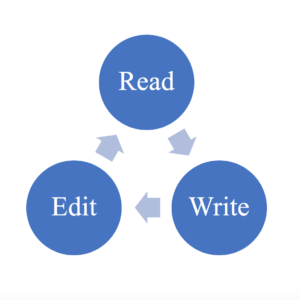
The problem was: I never ran out of things to read. Most of the time, I would only start writing once the deadline was in sight and I had no more time to waste. Rarely would I have enough time to edit my work.
For my thesis, though, I’m trying to follow my JP adviser’s system, spending equal amounts of time reading, writing, and editing. It took me until this week to realize that I need to treat these three elements as parts of a cycle, rather than macro chronological steps. In other words, I realized that I shouldn’t spend the first half of my fall semester just reading, the next few months writing, and the next few months editing. I need to be doing all three simultaneously. My reading, writing, and editing should be working in tandem with each other.
Using Matlab for STEM Research
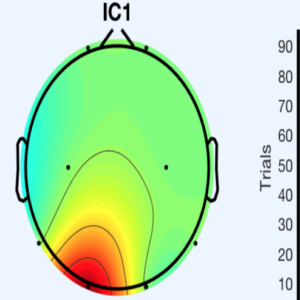
In the fall of my first year I wanted to join a neuroscience research lab. I was hoping to contribute to meaningful research, network with helpful mentors, and develop new skills and qualifications. In retrospect I should have waited to adjust to Princeton and my new course-load before even beginning to think about labs. I didn’t, though, and as I sent a flurry of emails to lab directors, I soon ran into a barrier: I found it incredibly difficult to be accepted into a lab.
In their response to my email, one lab director told me that they preferred students with significant experience in the programming language Matlab. Although I’d used Matlab before, my trial subscription had long expired. Using the free software links available through the Office of Information Technology (OIT) website, however, I was able to download and use Matlab once more. I soon realized that a laboratory setting wasn’t necessary for me to conduct my own research. In fact, I actually felt empowered by the ability to choose my own research topic.
Reframing the Senior Thesis for Intellectual Interest and Public Service
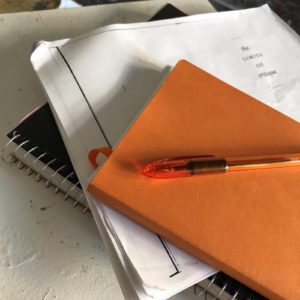
As we work our way into the fall semester, my fellow seniors might find some truth in the well-worn Dickens adage, “It [is] the best of times, it [is] the worst of times.” While this sentiment assumes a different shape and quality for each of us, it does seem generally fair to say that our final fall of college brings with it many joys—such as the enjoyment of established friendships, institutional and departmental familiarity, and an overall excitement about the many possibilities ahead—as well as certain unique stressors, such as discerning what in the great wide world to do after graduation and, of course, writing that Senior Thesis. While no one blog post can assuage all of our collective life-directional angst, that needn’t stop us from thinking about how to make our present situation a little brighter. One key way in which I suggest we can do this is by reframing how we view our theses. Which is to say, if your thesis currently makes you feel stressed, bored, uneasy, or generally bad, I hope you will read on. Continue reading Reframing the Senior Thesis for Intellectual Interest and Public Service
Looking Beyond the Orange Bubble
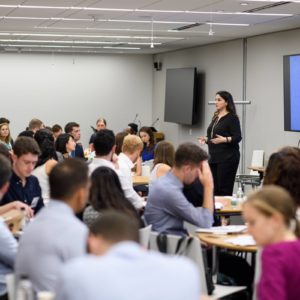
It is easy to get caught up in everything going on on campus. Between classes, extracurriculars, and other activities, it feels as if there is no time for anything outside of Princeton. However, in a post at the end of last year, I mentioned the importance of attending outside academic conferences and other enrichment opportunities as a way to strengthen your academic experience. After a great learning opportunity at the American Institute of Chemical Engineers (AIChE) conference in April, I made it a goal for myself to attend more of these events this year. Thus, when I received an email from the Princeton University Mentorship Program (PUMP!) about attending the DISCOVER Summit in Philadelphia on September 13th, I immediately accepted. In this post, I will further expand on how the summit affirmed the importance of looking beyond the “orange bubble”.
The Art of Transforming Your Paper into a Presentation
Research does not end at simply conducting experiments or making a mind-blowing discovery in your academic field. It’s just as important—or perhaps even more so—to share your findings with others and to hear their thoughts on what you’ve discovered. Throughout your time at Princeton, you will come across multiple opportunities to present your research–whether it’s presenting at Princeton Research Day, drafting independent work proposals for advisors, showcasing your research from summer internships, or even just preparing presentations for class. Sharing your research is thus a common and necessary step in creating scholarly conversation, and can be a very rewarding and enlightening experience for you and for others. However, it can be challenging to find the most effective way to convey your knowledge and work to your audience.
This past April, I participated in the Mary W. George Freshman Research Conference, where I presented my paper “Racism in K-pop: A Reflection of South Korea’s Racialized Discourse of Beauty.” My paper was 16 pages long, and in the beginning, I had no idea how I would synthesize this into a 10-minute presentation. How do you condense a paper that long into just 10 minutes without losing the key points of your argument? Everything in my essay felt critical to my thesis, and yet I knew I couldn’t include every single point in my presentation.
Here are a few aspects that I focused on, which I think will be helpful in transforming your paper into a great presentation. Continue reading The Art of Transforming Your Paper into a Presentation
The Senior Thesis: Start Early!
The infamous Senior Thesis is a source of stress and anxiety for many students. Although there are information sessions galore for juniors, I didn’t feel like I actually understood the process until I started it. This summer, I began my thesis research process by traveling to Norway to collect observational data on the country’s prison system.
Summer Experiences: Gaining Perspective Through Interdisciplinary Research
I’ve known that I wanted to do science research since the age of sixteen, when I spent my first summer in a neuroscience lab. My time in the lab taught me many new skills and enabled me to immediately apply them to unsolved problems–what other summer job could be more interesting than that? Though my specific interests have shifted slightly (I’m now a chemical and biological engineer rather than a neuroscientist), I’ve devoted every summer since to benchwork of some sort.
Consequently, when I started to look for laboratory opportunities last year, I immediately gravitated towards biology research. I had loved the past three summers–why not experience another? In the winter, I applied to internships through Princeton’s International Internship Program (IIP), and I was lucky enough to receive an offer to study the mechanisms of Shigella (a bacterium that causes dysentery) infection at the Pasteur Institute in Paris, France. I accepted immediately, thrilled that I’d be spending my summer abroad–and on Princeton’s dime!
But as the year wore on, I started to consider what the added value of another summer of wet-lab research would be, especially since time constraints would limit my contribution. I felt like was narrowing in on my chosen field too early. Wouldn’t I be bored?
Continue reading Summer Experiences: Gaining Perspective Through Interdisciplinary Research
Welcome Back!
The 2019-2020 academic year is up and running! Classes are in session, recruiting season is upon us, and our first paper deadlines are approaching. PCUR is back too as a resource to help guide you through this year. Our correspondents from across grade levels and academic disciplines will reflect on their own experiences, share tips that they have learned along the way, and raise awareness of the countless research-related opportunities and resources Princeton has to offer. Be sure to take a look at our first post of the year where Rafi offers advice on how to reduce independent work stress.
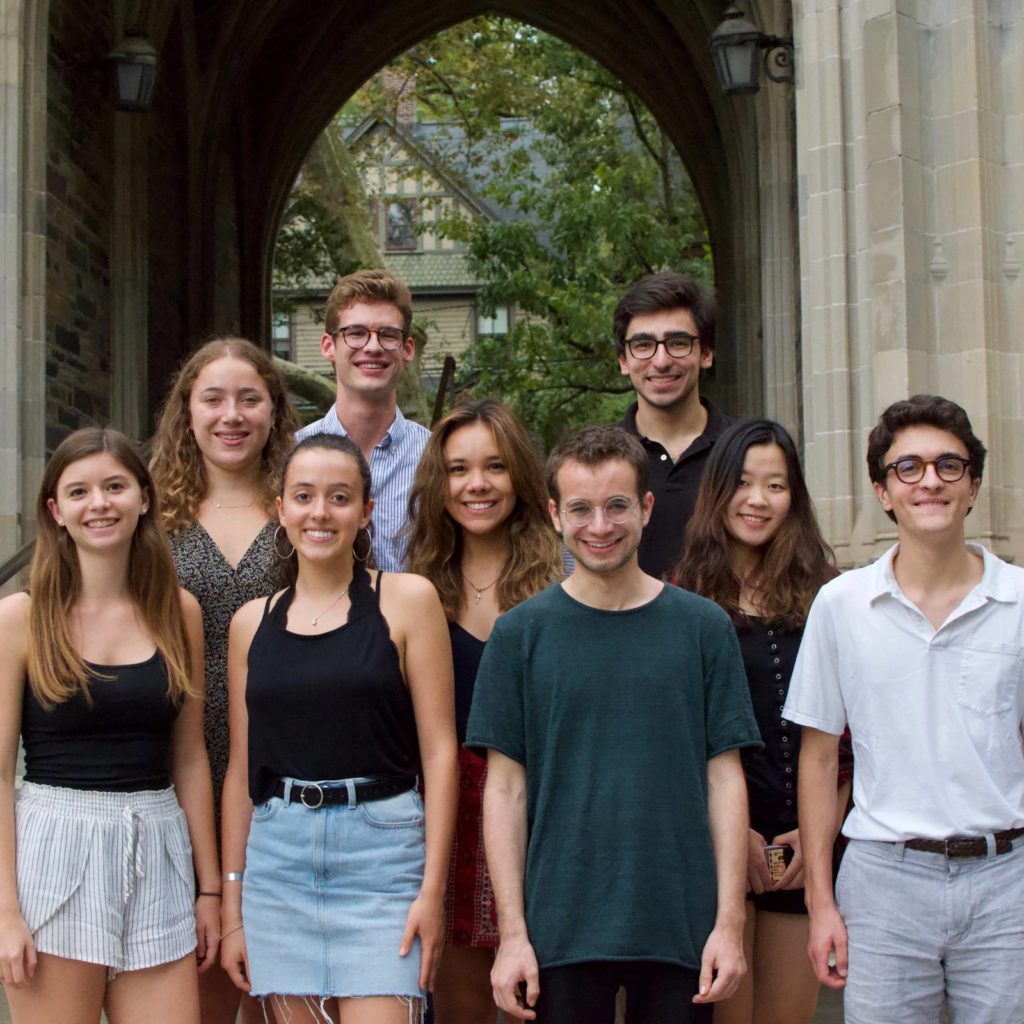
Along with our returning correspondents Rafi, Shanon, Andrea, Saira, and Alec, we have three new sophomore correspondents Ella, Kamron, and Soo. Check out their bios below!

